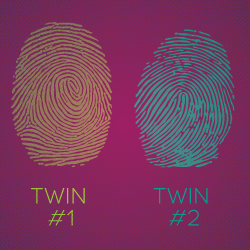
Emil Hermann Fischer, more commonly known as Emil Fischer, was an eminent German chemist. He received the Nobel Prize for chemistry in 1902 in recognition of his work in the sugar and purine groups.
Emil Fischer helped to reorganize the teaching of chemistry, and to establish research facilities. His work in organic chemistry was primarily on the constitution and synthesis of substances present in organisms.
Fischer laid the chemical foundations for biochemistry by his study of sugars, enzymes, purines, and proteins. He was also instrumental in the discovery of barbiturates, a class of sedative drugs used for insomnia, epilepsy, anxiety, and anaesthesia.
Fischer’s keen understanding of scientific problems, his intuition and love of truth, and his insistence on experimental proof of hypotheses, marked him as one of the truly great scientists of all time.

 Fingerprint formation is like the growth of capillaries and blood vessels in angiogenesis. The pattern is not strictly determined by the genetic code but by small variables in growth factor concentrations and hormones within the tissue. There are so many
Fingerprint formation is like the growth of capillaries and blood vessels in angiogenesis. The pattern is not strictly determined by the genetic code but by small variables in growth factor concentrations and hormones within the tissue. There are so many  variables during fingerprint formation that it would be impossible for two to be alike. However it is not totally random, perhaps having more in common with a chaotic system than a random system.
variables during fingerprint formation that it would be impossible for two to be alike. However it is not totally random, perhaps having more in common with a chaotic system than a random system.